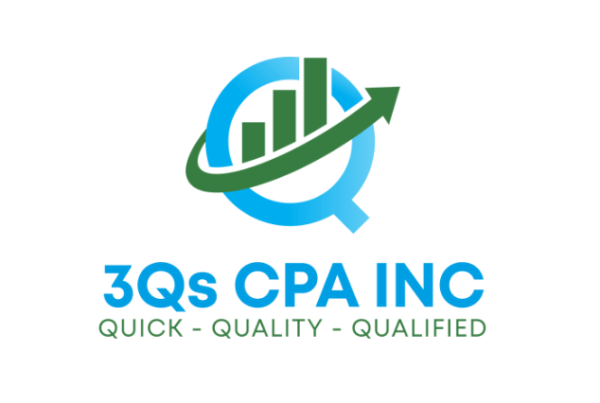At 3Qs CPA, we constantly trying to identify tax saving strategies and educate our clients about the implementation and implications of those strategies. We have identified following strategies that we believe can help business clients, who file taxes as an S Corp, save money in taxes. For a detailed analysis of your unique situation, please reach out to our office to schedule a meeting.
Strategy #1
Reduce S corporation Owner’s Wages
You can cut payroll taxes on the S corporation owner’s salary by thousands of dollars in many cases.
Too many owner/employees are paying too high of a salary to themselves, resulting in overpaying payroll taxes by thousands of dollars.
Strategy #2
Deduct S corporation Owner’s Health Insurance Premiums
The S corporation establishes the health insurance plan for the owner. The health insurance premiums are then included on the owner’s W-2 taxable wages. Finally, as long as the owner qualifies for the self-employed health insurance deduction, this is claimed on page 1 of the owner’s 1040.
Strategy #3
Employ Your Child
The S corporation owner must pay payroll taxes on the child’s wages, but the savings come with the family’s decrease in income taxes. Each child can earn up to $12,950 in 2022 without paying any federal income taxes.
Strategy #4
Sell Your Home to Your S Corporation Before Converting it to a Rental Property
When a homeowner plans on converting their personal residence into a rental property, there are big tax savings by first selling the home to their S corporation.
The owner can avoid taxes on the sale with the home-sale exclusion of $250,000 gain ($500,000 if married). Additionally, you increase the rental property’s depreciable basis which provides for greater depreciation deductions for the property.
Strategy #5
Reimbursement of Home Office Expenses
When the S corporation owner uses a home office, the corporation may reimburse him or her for the expenses. This is a deduction for the corporation and tax-free income to the owner. You may deduct this as “Office Expenses” on the corporate return.




